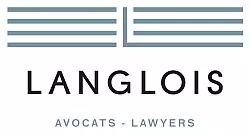On September 2, 2020, the Regulation respecting the regulatory scheme applying to activities on the basis of their environmental impact (known in French as the "REAFIE"), as well as several other regulations, was finally adopted, thus allowing for the implementation of the new environmental authorization scheme under the Environment Quality Act (the "EQA"). It should be noted that the provisions of the REAFIE will come into force on December 31, 2020.
A look back at the key stages of modernization
- 2015: Publication of a green paper setting out the main objectives of the new and improved environmental authorization scheme. This marked the beginning of the first major overhaul of the EQA since 1972;
- March 2017: Adoption of Bill 102,1 the stated objective of which was to provide a new environmental authorization scheme that was more clear, predictable, and effective, and tailored to the degree of risk of the activities concerned;
- February 2018: Publication of several draft regulations for consultation, including the RAMDCME;2
- March 2018: Entry into force of several provisions of Bill 102;
- July 2018: Establishment of sectoral co-creation tables in response to a range of criticisms, including criticisms levelled at the RAMDCME in particular;
- February 2020: Publication of the draft REAFIE and other draft regulations for consultation.
The REAFIE in brief
The main innovation of the REAFIE is to propose customizing the environmental approval process based on the degree of environmental impact of the activity in question. Furthermore, the REAFIE contains various provisions that affect related rules, including:
- General provisions regarding the documentation to be provided to support a declaration of compliance or application for ministerial authorization;
- Rules regarding the transfer of a ministerial authorization and the cessation of authorized activities under the EQA;
- Provisions relating to applications for authorization for various specific activities (previously set out in various sector-specific regulations);
- Administrative and penal provisions that specify the scope of the related provisions of the EQA;
- Transitional provisions that provide, inter alia, for the entry into force on December 31, 2021, of the provisions of the REAFIE relating to electronic submission of applications for authorization.
The REAFIE in numbers
- Exemptions: Approximately 150 activities designated as negligible risk will be exempted from the authorization process;
- Declarations of compliance: Around sixty low-risk activities will be subject to declarations of compliance;
- Ministerial authorizations: Around thirty triggers are planned for moderate-risk activities that will be subject to ministerial authorizations (formerly certificates of authorization), while high-risk activities will be subject to the impact assessment procedure set out in the Regulation respecting the environmental impact assessment and review of certain projects.
In addition to the adoption of the REAFIE, some thirty other regulations will be amended, adopted or repealed as of December 31, 2020, mainly to ensure consistency with the REAFIE.
The adoption of four new regulations should be highlighted, namely:
- the Regulation respecting activities in wetlands, bodies of water and sensitive areas (which replaces and expands the scope of the Regulation respecting motor vehicle traffic in certain fragile environments);
- the Regulation respecting the reclamation of residual materials;
- the Design code of a storm water management system eligible for a declaration of compliance; and
- the Snow, Road Salt and Abrasives Management Regulation.
The coming into force of the REAFIE next December will mark the end of a long transitional period that began with the adoption of Bill 102 in 2018, and it will bring more predictability to the process of applying for authorization from the Ministry of the Environment and the Fight Against Climate Change.
Stay tuned for additional bulletins on the interpretation and application of the REAFIE, and feel free to contact a member of our team if you have any questions.
Footnotes
1. An Act to amend the Environment Quality Act to modernize the environmental authorization scheme and to amend other legislative provisions, in particular to reform the governance of the Green Fund.
2. Draft Regulation on Ministerial Authorization and Declaration of Environmental Compliance.
The content of this article is intended to provide a general guide to the subject matter. Specialist advice should be sought about your specific circumstances.

